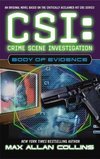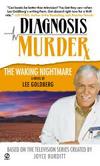The tie-in talk here and on other blogs has blossomed into several discussions and remembrances of the late Michael Avallone, author of many tie-ins as well as the Ed Noon detective novels. Here’s a sampling of the what’s being said.
Over on James Reasoner’s blog:
All this makes me think of the original King of the TV Tie-in Novel. Max Allan Collins probably has that title today, but in the Sixties it was Michael Avallone who turned out more tie-in novels (and movie novelizations) than anybody else. The first Avallone novel I ever read, in fact, was a TV tie-in: THE MAN FROM U.N.C.L.E. He also wrote novels for THE GIRL FROM U.N.C.L.E., THE FELONY SQUAD, HAWAII FIVE-0, MISSION: IMPOSSIBLE, MANNIX, THE PARTRIDGE FAMILY (some of Avallone’s best-selling books, in fact, were Partridge Family novels), and
probably other series that I’m forgetting at the moment. When I read Avallone’s MAN FROM U.N.C.L.E. novel (bought brand-new off the paperback rack at Buddie’s Supermarket) as a 12-year-old, I realized
for the first time that a writer could have such a distinctive voice that his work can’t be mistaken for anyone else’s. And I liked that voice well enough so that for a long time after that, I picked up every
Avallone novel I came across.
Over on Ed Gorman’s blog:
My all time favorite Avallone story concerns a piece he wanted to
write for Mystery Scene about his friend Cornell Woolrich. I’d been dealing with Mike for several years so I knew the pitfalls. He wrote me a query letter about the Woolrich piece and I wrote back and said All
right, Mike, but just remember the disagreements we’ve had in the past. Make this piece about Woolrich and not about you.Couple weeks later the piece comes in and it starts off very well. Here comes Avo up to Woolrich’s shabby little hotel room, they have a beer and talk, and then Avo says, Cornell, I want to interview you.
To which Cornell allegedly says, Mickey, I’m tired of being interviewed. Let’s talk about you.
So, according to Avo, the night turns into a love fest about the genius of one Michael Avallone. The whole freaking piece is Avo talking about himself.
There’s more, much more, to this funny story and I encourage you to visit Ed’s blog and read it.
Meanwhile, over on Bill Crider’s blog:
My own favorite Avo tale is that when he made a list of the Top Ten Private-Eye Novels of All Time, he put two of his own books on it. As I recall, however, he did modestly give Raymond Chandler the #1 position.
I don’t have any stories about Avallone to share, I only met him once at a paperback book show. I did read one of his original novels once… THE SATAN SLEUTH… but I don’t remember a thing about it beyond it’s cheesy title.






